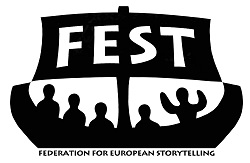Tickets: NAC Box Office
To know? Maybe something of the cast of characters. Some, you'll probably be familiar with; others maybe not.
THE GREEKS
come first:
Agamemnon
, supreme leader of the Greek armies;
Menelaus
, Agamemnon’s brother, husband to Helen who is cause of the Trojan War;
Achilles
, son of Peleus and the sea-nymph, Thetis, leader of the Myrmidons, the greatest warrior the world has ever known;
Patroclus
, Achilles’ beloved companion and his charioteer;
Briseis
, slave girl to Achilles, captured in a far-off raid;
Odysseus
, always to be counted on for his wisdom;
Ajax
, son of Telamon and
Ajax
, son of Oileus, two great warriors; Gerenian
Nestor
, leader full of ancient tales;
Helen
, now living not-so-happily in Troy.
Then, there are
THE TROJANS
Priam
, king, Troy's ruler;
Hector
of the loud war-cry and the flashing helmet, Priam’s oldest son;
Hecabe
, Priam’s wife and Hector’s mother;
Paris
, son of Priam who won Helen’s love;
Andromache
, wife of Hector;
Astyanax
, Hector’s infant son;
Cassandra
, Priam’s daughter, destined to prophesy the truth but never be listened to.
The lists speak volumes. In Troy, there are women, families, the life of a city to be attended to. The Greeks live in an encapment. Apart from the slaves who have been captured and give service, it is a world of men
Finally, there are
THE GODS:
Zeus
, Son of Cronus, Father of All; Ox-eyed
Hera
, his wife;
Pallas Athene
, his daughter;
Aphrodite
, Goddess of Love and Beauty;
Apollo
of the Silver Bow;
Artemis
, the Archeress;
Poseidon
, the Sea-lord;
Hephaestus
, the Smith;
Ares
, God of War;
Thetis
, a sea-nymph, mother to Achilles;
Iris and Hermes
, messengers
All would seem to be members of the usual pantheon of classical mythology. Watch out, however. Homer uses the gods to his own purpose. They come down from the heavens, take human form, assume disguises. Their impact on the action is frequently surprising. They surprise the Greeks, they surprise the Trojans. They surprise the listeners to Homer's tale. They certainly have surprised the tellers, occasioning much discussion of their role.
As for the tellers, I have to admit that at this point there are ups and there are downs—days when we’re sure we’re ready, days when we think we never will be, days of intense excitement as new insights come. That's the nature of performance. That's what pushes to work harder, speak the words to ourselves so often we’ve trained the muscles of our faces and our mouths; dig always that bit deeper for the riches that will come. Amazing to think that we are nearly there.
On then to what is promised for the first set of the evening after supper.
Achilles Fights the River: Katherine Grier
Book 21
Rampaging slaughter,
outrage of a river god
waters towering
banks ablaze
Havoc is wrought. Never has there been such bloodshed, not even in this war. Never has there been such anger, such determination that the enemy will be destroyed entire. The field of battle shifts as an army flees in terror. A river’s flowing waters are bloodied and defiled.
Achilles Fights the River (cont.): Jacques Falquet
Book 21
Madness, vast and terrible
panic, courage, supplication
, terror, deception, relief
As on earth, so in heaven. The gods fight with each other, hand to hand, down and dirty; monumental in their efforts. Floods pour from the river, fire rages. The army is in full retreat, the men are seeking shelter, looking to the safety of the gates.
The Death of Hector: Jeff Wright
Book 22
Nightmare
duty, damned duty
acts unspeakable;
a father who must watch
There were so many who were fighting. Now there are but two. The outcome of the war depends on them. They are outside the city, two lone figures. One has prowess beyond imagining; the other sees this, knows its terror but seeks his cause to hope.
The Death of Hector (cont.); The Funeral of Patroclus: Daniel Kletke
Book 22 (cont.), Book 23
Groans, hair torn, libations
a wife unknowing
a spirit in a dream
A son is dead, his body foully treated, his royal parents left to grieve. His death brings victory to another, but that victory is without rejoicing. A funeral pyre must be lit; a friend must be given burial with due pomp and circumstance. Grief cannot so easily be assuaged.
Tickets: NAC Box Office
 Thursday, June 26, 2014 at 9:10AM
Thursday, June 26, 2014 at 9:10AM



